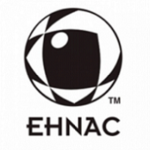On March 9, 2020 the ONC released the 21st Century Cures Act: Interoperability, Information Blocking, and the ONC Health IT Certification Program Final Rule, which implements provisions from the 21st Century Cures Act passed by Congress. The industry has been waiting for one year for the final rule. Here are some of the initial statements regarding the rule.
 WEDI Provides Comments on CMS and ONC Implementing Final Provisions of the 21st Century Cures Act
WEDI Provides Comments on CMS and ONC Implementing Final Provisions of the 21st Century Cures Act
WEDI (@WEDIonline), the nation’s leading nonprofit authority on the use of health IT to create efficiencies in health care information exchange and a statutory advisor to the U.S. Department of Health and Human Services (HHS), issued a statement on behalf of its President and CEO, Charles Stellar. The following remarks are in response to the release of the final rules by Centers for Medicare & Medicaid Services’ (CMS) and the Office of the National Coordinator (ONC) for Health Information Technology on Interoperability, Information Blocking, and the ONC Health IT Certification Program as mandated by the 21st Century Cures Act:
 AMA Reviewing Interoperability Rules to Determine Patient Focus, Privacy Issues
AMA Reviewing Interoperability Rules to Determine Patient Focus, Privacy Issues
Since last year’s release of proposed rules from the Office of the National Coordinator (ONC) and Centers for Medicare and Medicaid Services (CMS) implementing the 21st Century Cures Act’s provisions on information blocking and interoperability, the American Medical Association (AMA) (@AmerMedicalAssn) has engaged regularly with policymakers to refine the proposals so they meet the needs of patients and physicians.
“The AMA has been advocating on behalf of physicians and patients for over 10 years to ensure EHR usability, interoperability, and patient data and safety are top concerns when government agencies develop new policies,” said AMA President Patrice A. Harris, M.D., M.A. “We applied this knowledge and momentum as we worked with CMS and ONC in anticipation of today’s release of the final rule. As the AMA reviews the new rules, we will pay special attention to policies aimed at creating efficiencies in data exchange, reduction in physician burden, and patient control over and access to their data.”
 AHIMA Responds to Department of Health and Human Services’ Information Blocking Rule
AHIMA Responds to Department of Health and Human Services’ Information Blocking Rule
“We (@AHIMAResources) look forward to reviewing the final rule in greater detail. We support the intent of the Cures Act to eradicate practices that unreasonably limit the access, exchange and use of electronic health information for authorized and permitted purposes including patient access to their health information. However, given that the rule introduces a number of new definitions and terminologies and the significant economic impact of this rule, we are disappointed the Office of the National Coordinator for Health Information Technology did not heed stakeholders’ calls to issue an interim final rule.”
 EHNAC’s Executive Director Comments on Finalization of Health and Human Services Rules on Interoperability and Data Blocking Regulations
EHNAC’s Executive Director Comments on Finalization of Health and Human Services Rules on Interoperability and Data Blocking Regulations
The U.S. Department of Health and Human Services (HHS) announced the finalization of two rules on Interoperability, Information Blocking, and the ONC Health IT Certification Program as mandated by the 21st Century Cures Act. Lee Barrett, executive director and CEO of the Electronic Healthcare Network Accreditation Commission (EHNAC) (@EHNAC), and member of the HHS Cybersecurity Task Force 405(d), the Healthcare Sector Coordinating Council Cybersecurity Working Group and the ONC FAST Tiger Team initiative, issued the following insights on the finalized rules and their implications on providers, insurers and patients:
 Edifecs Releases Statement on CMS Interoperability and Patient Access and ONC Cures Act Final Rules
Edifecs Releases Statement on CMS Interoperability and Patient Access and ONC Cures Act Final Rules
Edifecs, Inc. (@edifecs), a global health information technology solutions company, issued a statement in response to the release of The Office of the National Coordinator (ONC) for Health Information Technology final rules for the 21st Century Cures Act: Interoperability, Information Blocking, and the Centers for Medicare & Medicaid Services’ (CMS) Interoperability and Patient Access Final Rule. The following statement is issued by Edifecs on behalf of its President and CEO, Sunny Singh:
 Alexander Statement on Final Electronic Health Records Rules
Alexander Statement on Final Electronic Health Records Rules
U.S. Senate health committee Chairman Lamar Alexander (R-Tenn.) released the following statement after the Trump Administration released two final electronic health record rules: “These rules are a continuation of the effort to make electronic health records systems work so patients have access to their own medical records. According to the U.S. Department of Health and Human Services, these two rules should give more than 125 million patients easier access to their own records in an electronic format. These new rules also stop information blocking – so it is clear when one system is purposefully not sharing information with another – which is detrimental to patients being able to access, use, and share their own records. While I am reviewing these rules to ensure they do not go too far, too fast, I am glad they have been made final to give patients more control over their records and doctors more information so they can better treat their patients.”
 Allscripts announces full support of HHS’ commitment to patients with final interoperability rules
Allscripts announces full support of HHS’ commitment to patients with final interoperability rules
Allscripts Healthcare Solutions (@Allscripts) announced its support for the two transformative regulations recently released by the U.S. Department of Health and Human Services’ (HHS), believing both will move patients to the center of making their own health decisions, addressing the current obstacles with the flow of health information.
Allscripts has strongly advocated for policy efforts to address information blocking since they were first conceived in Congress and applauds the numerous opportunities for stakeholders to provide input through the HHS rule review process. Issued by the HHS Office of the National Coordinator for Health Information Technology (ONC) and Centers for Medicare & Medicaid Services (CMS), the two rules implement in more detail the interoperability and patient access provisions of the bipartisan 21st Century Cures Act (Cures Act).
